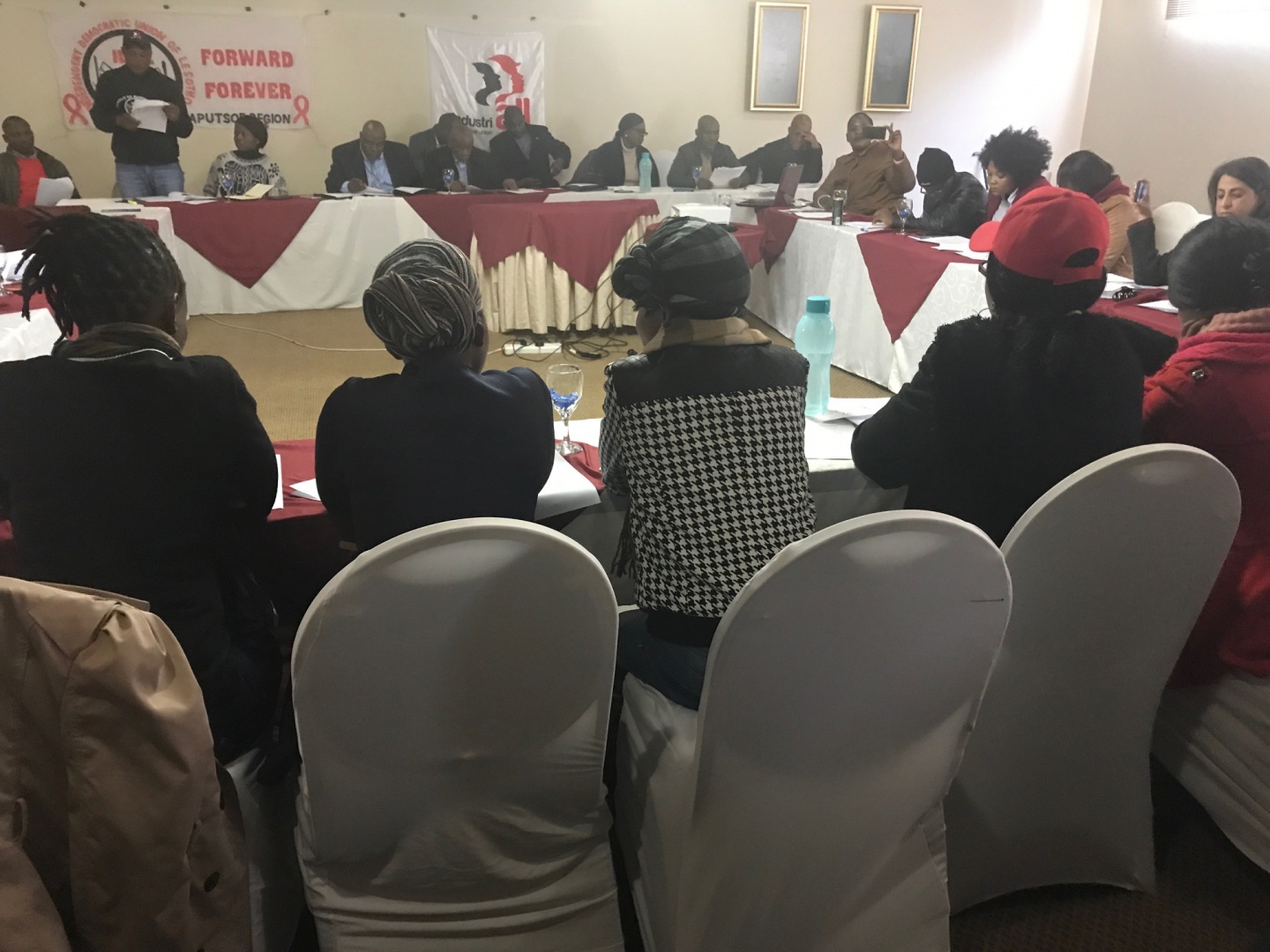Read this article in:
English
4 July, 2017At an IndustriALL-organized capacity building meeting for young shop stewards in Maseru, Lesotho, on 1 July, demands for better wages in the garment and textile sector were made to the government of Lesotho.
The young workers, from IndustriALL Global Union affiliate, the Independent Democratic Union of Lesotho (IDUL), wanted the government, which is responsible for setting minimum wages, to respond in 30 days. They said the low wages were unjust. Further, they wanted social dialogue on how to make the Directorate of Dispute Prevention and Resolution as well as the labour courts more effective.
Present at the meeting was Lesotho’s newly elected Prime Minister, Thomas Thabane, who said the issues raised by the workers would receive immediate attention. Invited but absent was the Lesotho Employers' Association.
In 2016, a trained machinist was paid a monthly minimum wage of US$104, while a general worker got US$77. The union hoped that the minimum wage for 2017 would be $155.
Inflation adjustments of seven to eight per cent per year didn’t improve workers’ welfare and weren’t enough to cover living expenses. Some couldn’t even afford transport costs to go to work and walked long distances to factories. Exhausted on arrival, they were exposed to occupational injuries.
Women workers, making up 90 per cent of the lowly paid textile workers, were the most affected. Some supplemented the poor incomes with informal work during weekends. So, they didn’t rest.
The meeting called upon the government to ratify ILO Convention 183 on maternity protection and wanted discrimination on maternity leave faced by the textile workers to stop. The workers were given only six weeks whilst public sector workers got 12 weeks maternity leave.
Employing around 46,500 workers, the garment and textile sector is Lesotho’s largest formal private sector employer. It also has jobs along the value chain such as the small packaging industry, road freight transporters, courier services, clearing agents, security, passenger transport, food vendors, residential accommodation, water, and electrical and telecommunication utilities.
Said Seabata Likoti, assistant general secretary of IDUL:
“We have spent a long time talking about decent work in the textile sector with government, employers and the ILO. But decent work is not possible without a living wage that caters for nutritious food, safe water, decent housing, adequate health care, education and clothing.”
Said Fabian Nkomo, IndustriALL regional secretary for Sub Saharan Africa:
“We appreciate the willingness of the Prime Minister and the government of Lesotho to improve wages, and hope that these efforts will end poverty wages in the sector”.
